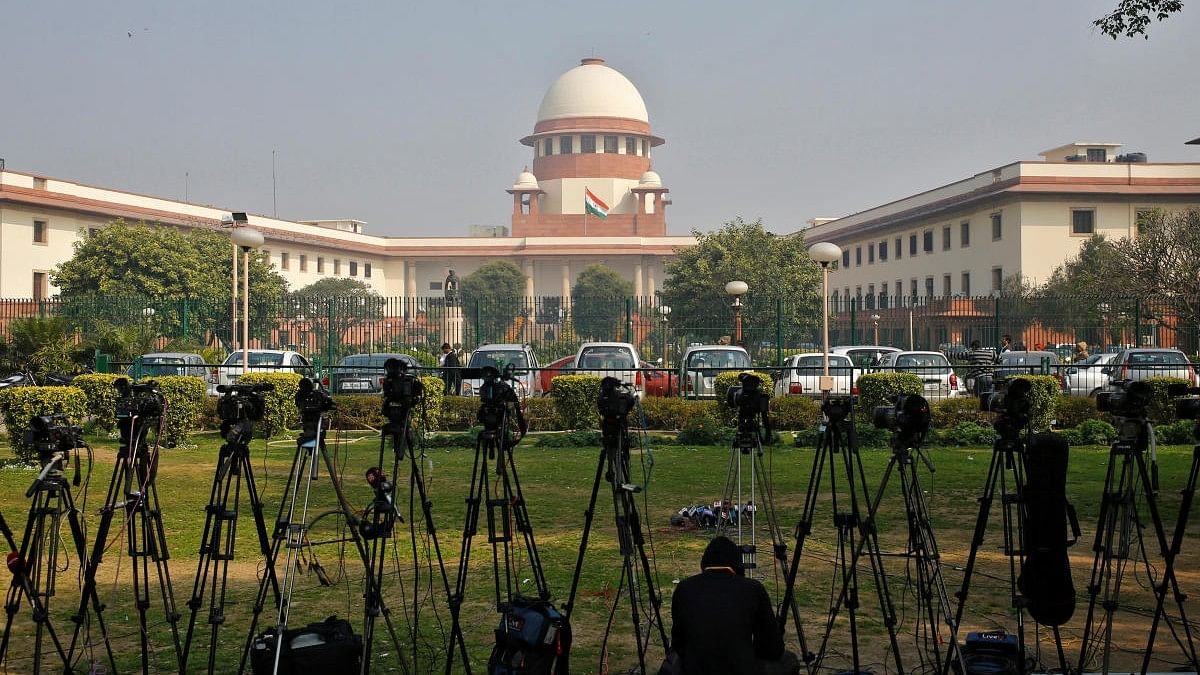
The Supreme Court Of India
Credit : DH File Photo
New Delhi: The Supreme Court on Tuesday said the period of three months granted for preliminary assessment to assess whether a child in conflict with law would be tried as adult or juvenile is not mandatory but is held as directory only.
A bench of Justices C T Ravikumar and Rajesh Bindal said this period can be extended, for the reasons to be recorded in writing, by the Chief Judicial Magistrate or, as the case may be, by the Chief Metropolitan Magistrate.
The court also held the 'Children’s Court’ and ‘Court of Sessions’ in Juvenile Justice (Care and Protection of Children) Act, 2015 and the 2016 Rules should be read interchangeably. Primarily, the jurisdiction vests in the Children’s Court.
However, in the absence of constitution of such Children’s Court in the district, the power to be exercised under the Act is vested with the Court of Sessions, the bench said.
The court also directed in all the orders passed by the courts, tribunals, boards and the quasi-judicial authorities, the names of the Presiding Officer or the members who sign the orders should be mentioned. In case any identification number has been given, it can also be added, the bench said.
The Presiding Officers and Members while passing the order should properly record presence of the parties and their counsels, the purpose for which the matter is being adjourned and the party on whose behalf the adjournment has been sought and granted.
"In many of the orders the presence of the parties and/or their counsels is not properly recorded. Further, it is not evident as to on whose behalf adjournment has been sought and granted. It is very relevant fact to be considered at different stages of the case and also to find out as to who was the party delaying the matter. At the time of grant of adjournment, it should specifically be mentioned as to the purpose therefor. This may be helpful in imposition of costs also, finally once we shift to the real terms costs," the bench said.
The court issued a slew of directions with regard to practice and procedure in the Juvenile Justice (Care and Protection of Children) Act, 2015, after hearing senior advocates Sidharth Luthra and S Nagamuthu on behalf of a child in conflict with law.
Additional Advocate General Aman Panwar appeared for the Karnataka government. Karnataka government submitted Section 14(3) of the Act is directory and not mandatory, as no consequence of such a default has been provided in the Act. Even proviso to Section 14(4) provides for extension of time in case the inquiry as envisaged under Section 14(1) cannot be concluded within the time prescribed.
The appellant through his mother challenged the Karnataka High Court's order, which set aside the order to treat him as juvenile.
The court also held that appeal, under Section 101(2) of the Act against an order of the Juvenile Justice Board passed under Section 15 for preliminary assessment into heinous offences, can be filed within a period of 30 days.
"The appellate court can entertain the appeal after the expiry of the period, provided sufficient cause is shown. Endeavour has to be made to decide any such appeal filed within a period of 30 days," the bench said.
The matter arose out of an FIR lodged against the child in conflict with law for offences of rape and other offences under the Protection of Children from Sexual Offences Act.
In this case, the Principal Magistrate of the Board passed an order on April 5, 2022, holding that as per preliminary assessment report and the social investigation report, the CCL is to be tried as an adult by the Children’s Court. The record was directed to be transferred to the Court concerned.
The apex court said the order passed by the Board as signed by the Principal Magistrate on April 05, 2022 was final.
"However, the order is subject to right of appeal of the aggrieved party. The appellant shall have the right of appeal against the order within a period of 10 days from today," the bench said.
The bench also directed a copy of its judgment be sent to all the Registrar Generals of High Courts for further circulation amongst the Judicial Officers and the Members of the Juvenile Justice Boards, the Directors of the National Judicial Academy and the State Judicial Academies.
